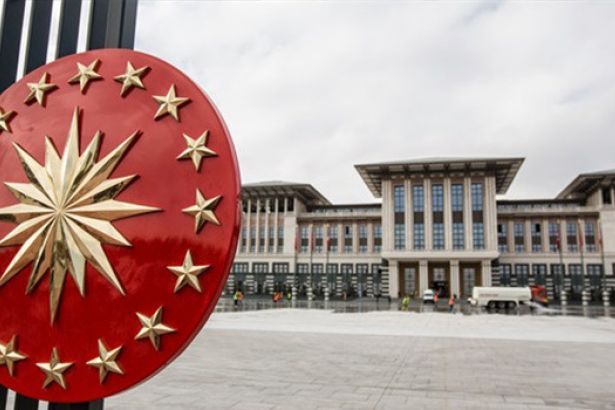Exceptional powers to Turkey’s Supervisory Council

Turkey’s State Supervisory Council has been reestablished by being vested with extraordinary powers with the presidential decree no. 5 on July 15, 2018.
The State Supervisory Council (DDK) was established in 1981 under the presidency of putschist Kenan Evren, just after the 1980 military coup in Turkey, in order to maintain the force to impact and control over the administration.
It was written in the Constitution and the Law No. 2443 that "The State Supervisory Council which shall be attached to the Office of the Presidency of the Republic, with the purpose of ensuring the lawfulness, regular and efficient functioning and improvement of administration."
DDK has carried out inspections for nearly 40 years, entrusted with the authorities required by the tasks listed above. The projected task did not require to make investigation or to have the testimony like a safety inspector or police; this was why DDK had not been vested with these powers.
While the constitution was amended in 2017, DDK was given authorization both to investigate and to make audits in the Turkish Armed Forces (TAF).
As several articles of the relevant law have been abolished by Decree-Law No. 703 issued with the intent to replace the adjustment laws on July 9, 2018, DDK has been reestablished by being vested with extraordinary powers with the presidential decree no. 5 on July 15, 2018.
DDK HAS BEEN ENTITLED WITH "SUPREME SUPERVISORY BODY"
The term "organ," or "body," is used to describe legislation, jurisdiction and executive power in the administrative law. If it has been intentionally used, this means that a new "organ" called "supervision" has been established superior to all the institutions of the state.
The term "organ" which is used when explaining the organizational structure of public institutions, refers to service units such as a board of directors, personnel directorate, and directorate of information processing.
It is clear that this term is used in its first meaning in the relevant decree law. Article 21 of the decree-law starts with these sentences: "The Council as the supreme supervisory body…"
And it is projected that DDK will determine the investigations, enquiries, rules, methods and standards along with report writing techniques of procedures and principles for all inspectors, internal auditors and those officials entrusted with making investigations by top executives.
Thus, DDK has the power to penetrate into organizational structures of almost every ministries, institutions and foundations: DDK has been granted the authority to resolve even potential disagreements and divergences between internal audit units and the officers appointed as investigators by top executives.
AUTHORITY TO DISMISS AND CONDUCT INVESTIGATION
The authority to dismiss and conduct investigation granted to DDK should be evaluated as a natural consequence of identification of ministries, state institutions and organizations as service units within the organizational structure of the presidency.
Yet, such broad authorities given to DDK show that Turkey’s presidency does not trust any institutions or state officials. There are no other meanings for creating special structures vested with special powers so that one can control the other.
DDK TO PUT PRESSURE ON TRADE ASSOCIATIONS AND UNIONS
DDK already had supervisory power over trade associations and unions in the past. During the period of Abdullah Gül, the 11th President of Turkey, a general inspection had been even carried out in order to intimidate relevant institutions and organizations.
However, DDK did not have powers such as investigation or dismissal at that time.
With the new arrangement, DDK has been vested with the authority to conduct investigations and to decide the dismissals in trade unions and similar organizations such as the Union of Chambers of Turkish Engineers and Architects (TMMOB) and the Turkish Medical Association (TTB).
In other words, these unions and associations have been given to the authority of the Turkish President Recep Tayyip Erdoğan through DDK.
AUTHORITY TO SUPERVISE COMPANIES WITH GOLDEN SHARES OF THE PUBLIC
With the new arrangement, DDK has been also granted authority to supervise companies in which the state has golden shares. Article 1 of the relevant Presidential Decree rules that "DDK has the authority to supervise … overseas partnership and all kinds of units that have a qualified share or jointly controlled entities in the dominant position under the public administration."
This authority means that the ruling Justice and Development Party (AKP) and the President Recep Tayyip Erdoğan are preparing to privatize strategically important institutions and they will step into action soon.
In this respect, the supervisory authority granted to DDK has no limits. It can even intervene in general assemblies of companies that DDK is authorized to audit.
AUDIT MANDATE TO OVERSEAS INSTITUTIONS AND ORGANIZATIONS
The two clauses below draw attention in the Article 4 of the relevant decree in which the DDK’s tasks are listed:
"c) To conduct investigations and research in international organizations and institutions within the framework of the provisions of the treaties or conventions,
d) To carry out workings and to make contributions to international institutions and organizations in the issues related to assigned positions, monitoring contributions workings done as coordinating them when necessary.’’
Apart from these, there are no any other regulations regarding foreign missions in the presidential decree.



